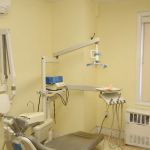
- Role-of-Vitamin-D-in-Oral-Health
- How-Vitamin-D-Strengthens-Teeth-and-Gums
- Sources-of-Vitamin-D-and-Maintaining-Adequate-Levels
- Consequences-of-Vitamin-D-Deficiency-on-Oral-Health
- Personal-Story-and-Professional-Advice
- How-Dentistry-Toothtruth-Can-Help
1. The Role of Vitamin D in Oral Health and Its Fundamental Importance
Vitamin D is often recognized for its role in bone health, but its importance extends deeply into oral health as well. This essential nutrient helps regulate calcium and phosphate in the body, which are critical minerals for maintaining strong teeth and healthy gums. Without sufficient vitamin D, the body struggles to absorb calcium effectively, which can compromise the structural integrity of your teeth and the surrounding bone.
Beyond mineral absorption, vitamin D also plays a significant role in modulating the immune response. A well-functioning immune system protects your gums from infections and inflammation that lead to periodontal disease, a major cause of tooth loss worldwide. Hence, vitamin D serves both a structural and protective function in oral health maintenance.
1.1 The Biological Mechanisms Supporting Oral Health
Vitamin D stimulates the production of antimicrobial peptides in saliva, which combat harmful bacteria that cause gum disease. It also supports bone remodeling—the continuous process by which bone tissue is renewed—which is vital for the jawbone that anchors your teeth. In essence, adequate vitamin D levels contribute to both preventing gum disease and maintaining the foundation for strong, healthy teeth.
2. How Vitamin D Strengthens Teeth and Gums: Detailed Insights
Teeth are composed mainly of enamel and dentin, both rich in minerals that depend on calcium and phosphate. Vitamin D’s role in regulating these minerals makes it indispensable for:
2.1 Enhancing Enamel Formation and Repair
Enamel is the hardest substance in the human body, but it needs constant support from nutrients to maintain its resilience. Vitamin D encourages the absorption and metabolism of calcium, which strengthens enamel and helps repair microscopic damage caused by daily wear.
2.2 Protecting Gum Tissue
The gums act as a protective barrier around teeth, preventing bacteria from reaching deeper tissues. Vitamin D’s anti-inflammatory properties reduce the risk of gum inflammation, helping to prevent conditions like gingivitis and more severe periodontal disease.
2.3 Supporting Bone Health Around Teeth
The jawbone must remain strong to securely hold teeth in place. Vitamin D deficiency can lead to bone loss, which may cause teeth to loosen or shift, increasing the risk of tooth loss. Maintaining adequate vitamin D levels ensures your jawbone remains dense and healthy.
3. Sources of Vitamin D and Tips for Maintaining Adequate Levels
Our bodies synthesize vitamin D when exposed to sunlight, but modern lifestyles and geographical location often limit this natural production. Understanding how to obtain sufficient vitamin D is key to protecting oral health:
3.1 Sunlight Exposure
Spending 10-30 minutes daily in direct sunlight on uncovered skin can boost vitamin D synthesis. However, factors such as skin tone, season, and sunscreen use affect how much vitamin D is produced.
3.2 Dietary Sources
Fatty fish like salmon and mackerel, fortified dairy products, egg yolks, and mushrooms are excellent sources. Including these in your diet helps maintain vitamin D levels, especially when sunlight is limited.
3.3 Supplements and Professional Guidance
For many, supplementation may be necessary to reach optimal levels. It is best to consult a healthcare professional for testing and personalized recommendations. Products aimed at oral health with added vitamin D can also be found at Dentistry Toothtruth, where tailored advice ensures you receive the right support for your dental wellness.
4. Consequences of Vitamin D Deficiency on Oral Health and Risks Involved
When vitamin D levels drop below optimal, the effects on oral health can be profound and often gradual:
4.1 Increased Risk of Periodontal Disease
Low vitamin D impairs the immune system’s ability to fight gum infections, leading to chronic inflammation and destruction of gum tissue.
4.2 Higher Incidence of Tooth Decay
Weakened enamel due to poor mineralization makes teeth more susceptible to cavities and sensitivity.
4.3 Bone Loss and Tooth Mobility
Reduced bone density around teeth can result in loose teeth and, eventually, tooth loss.
These risks underscore the critical need to monitor and maintain sufficient vitamin D levels, especially for individuals prone to gum disease or with existing oral health issues.
5. A Personal Story and Professional Advice on Vitamin D’s Impact
Take the example of James, a 42-year-old who struggled with recurring gum inflammation despite good brushing habits. After routine blood tests, his dentist discovered he had a vitamin D deficiency. By incorporating vitamin D supplements and dietary changes recommended by his dental care provider, James noticed a marked improvement in gum health within months, including reduced bleeding and sensitivity.
This story illustrates how vitamin D is often an overlooked but vital factor in oral care. It also highlights the importance of professional diagnosis and tailored treatment plans rather than self-medicating without guidance.
5.1 Expert Recommendations
Dentists and nutritionists recommend regular vitamin D level screenings, especially in regions with limited sunlight. Combining good oral hygiene practices with adequate vitamin D intake provides a comprehensive approach to oral health preservation.
6. How Dentistry Toothtruth Can Support Your Journey to Better Oral Health
For those seeking to optimize vitamin D levels as part of their oral health strategy, Dentistry Toothtruth offers personalized consultations, products enriched with essential nutrients, and professional guidance tailored to your needs. Whether you want to learn about the best vitamin D supplements for dental health or need specialized services for gum disease prevention, their expertise can help you achieve a healthier smile.
Taking proactive steps today with the right support will safeguard your teeth and gums for years to come.







 Kadan Orthodontics: Devon Location4.0 (104 review)
Kadan Orthodontics: Devon Location4.0 (104 review) Minnesota Orthodontics - Mendota Heights4.0 (27 review)
Minnesota Orthodontics - Mendota Heights4.0 (27 review) PERFECT SMILES DENTAL / Nguyen Katherine T DMD, FAGD5.0 (3 review)
PERFECT SMILES DENTAL / Nguyen Katherine T DMD, FAGD5.0 (3 review) Rakesh Khilwani DDS - Dental Implant East Meadow3.0 (9 review)
Rakesh Khilwani DDS - Dental Implant East Meadow3.0 (9 review) Valley Smiles Pediatric Dentistry4.0 (133 review)
Valley Smiles Pediatric Dentistry4.0 (133 review) Clemente Orthodontics of Ridgewood4.0 (350 review)
Clemente Orthodontics of Ridgewood4.0 (350 review) The Importance of Oral Health Education During Pregnancy for a Healthy Pregnancy
The Importance of Oral Health Education During Pregnancy for a Healthy Pregnancy Best Tips for Brushing Your Teeth Properly for Healthy Gums: Essential Techniques for Oral Health
Best Tips for Brushing Your Teeth Properly for Healthy Gums: Essential Techniques for Oral Health Why Skipping Dental Checkups Can Lead to Bigger Oral Health Problems
Why Skipping Dental Checkups Can Lead to Bigger Oral Health Problems Advantages of Porcelain Dental Restorations
Advantages of Porcelain Dental Restorations How Can Diabetes Cause Tooth and Gum Problems? Preventing and Managing Oral Health Issues
How Can Diabetes Cause Tooth and Gum Problems? Preventing and Managing Oral Health Issues Healthy Habits for Promoting Good Oral Health and Hygiene: Tips for a Healthy Smile
Healthy Habits for Promoting Good Oral Health and Hygiene: Tips for a Healthy Smile